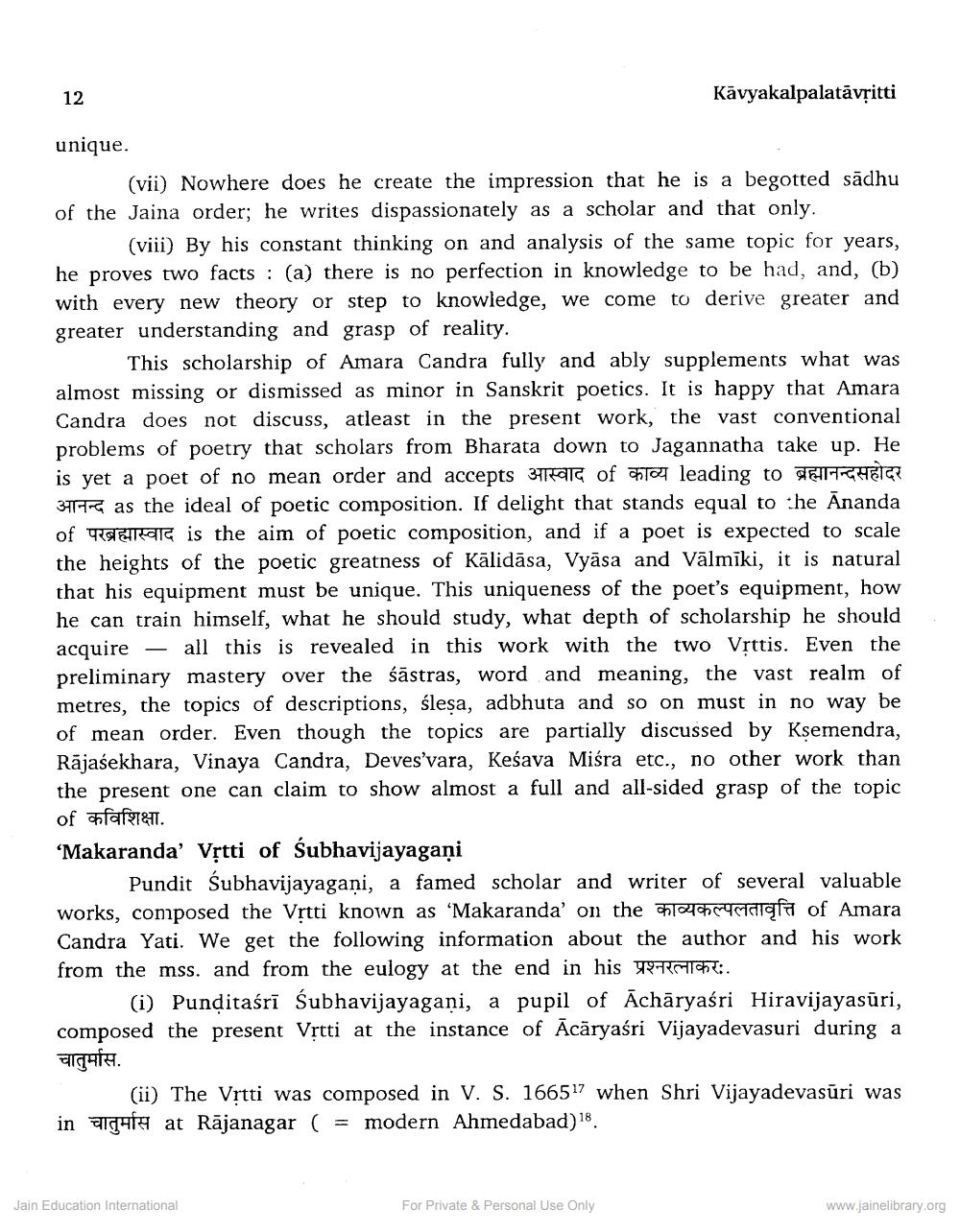________________
12
unique.
(vii) Nowhere does he create the impression that he is a begotted sadhu of the Jaina order; he writes dispassionately as a scholar and that only.
Kavyakalpalatāvṛitti
(viii) By his constant thinking on and analysis of the same topic for years, he proves two facts: (a) there is no perfection in knowledge to be had, and, (b) with every new theory or step to knowledge, we come to derive greater and greater understanding and grasp of reality.
This scholarship of Amara Candra fully and ably supplements what was almost missing or dismissed as minor in Sanskrit poetics. It is happy that Amara Candra does not discuss, atleast in the present work, the vast conventional problems of poetry that scholars from Bharata down to Jagannatha take up. He is yet a poet of no mean order and accepts आस्वाद of काव्य leading to ब्रह्मानन्दसहोदर 3 as the ideal of poetic composition. If delight that stands equal to the Ananda of RR is the aim of poetic composition, and if a poet is expected to scale the heights of the poetic greatness of Kālidāsa, Vyāsa and Valmiki, it is natural that his equipment must be unique. This uniqueness of the poet's equipment, how he can train himself, what he should study, what depth of scholarship he should acquire all this is revealed in this work with the two Vṛttis. Even the preliminary mastery over the śāstras, word and meaning, the vast realm of metres, the topics of descriptions, śleṣa, adbhuta and so on must in no way be of mean order. Even though the topics are partially discussed by Kṣemendra, Rajasekhara, Vinaya Candra, Deves'vara, Keśava Miśra etc., no other work than the present one can claim to show almost a full and all-sided grasp of the topic of कविशिक्षा.
'Makaranda' Vṛtti of Subhavijayagaṇi
Pundit Subhavijayagani, a famed scholar and writer of several valuable works, composed the Vṛtti known as 'Makaranda' on the f of Amara Candra Yati. We get the following information about the author and his work from the mss. and from the eulogy at the end in his CHICK.
(i) Punditaśrī Subhavijayagani, a pupil of Acharyaśri Hiravijayasūri, composed the present Vṛtti at the instance of Acaryaśri Vijayadevasuri during a चातुर्मास.
(ii) The Vṛtti was composed in V. S. 166517 when Shri Vijayadevasuri was in चातुर्मास at Rājanagar ( = modern Ahmedabad) 18.
Jain Education International
For Private & Personal Use Only
www.jainelibrary.org




